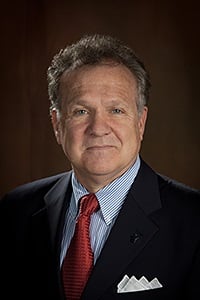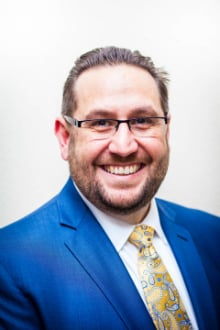You have /5 articles left.
Sign up for a free account or log in.
The University of Dallas has backed away from a controversial proposal to wade into adult degree completion -- a proposal that roiled the liberal arts university over much of the last year.
The proposal isn’t dead yet. But it has been moved behind a pair of other expansion ideas some see as a better fit for the private Roman Catholic university, which has long embraced an expansive core undergraduate curriculum rooted in the classics. Many faculty members worried an adult degree-completion program would not uphold the spirit or content of that core curriculum.
They also wondered whether the university’s resources could be better spent elsewhere. The University of Dallas is in better financial shape than many other small private liberal arts colleges, several of which have had to slash budgets and lay off employees. Some have suggested that Dallas could try to boost fund-raising to position itself for a stronger future.
Administrators, however, say the university is highly dependent on tuition and faces growing financial pressures in coming years. In their view, the university needs to find new sources of tuition revenue, and adult degree completion is a potentially promising path. They plan to continue to study the idea, and some hope it can lead to a way to expand the liberal arts in a new age with new sets of students.
In short, the debate is continuing to play out at the University of Dallas. And it has laid bare the fact that even strong and solvent liberal arts universities can struggle with an identity crisis in today’s fast-changing higher education market.
A Year of Debate
Faculty members reported first learning of the controversial proposal at the beginning of the 2016-17 academic year. Debate ebbed and flowed throughout the year, reaching high intensity this spring.
 The university’s president, Thomas W. Keefe, acknowledged the idea has been enveloped in drama. But he said that Dallas needs to explore new ideas.
The university’s president, Thomas W. Keefe, acknowledged the idea has been enveloped in drama. But he said that Dallas needs to explore new ideas.
The university has successfully grown from 317 freshmen in the fall of 2009 to 430 expected in the upcoming fall, Keefe said. It is expected to break even on a $60 million budget next year.
Yet it is highly dependent on undergraduate tuition and will not be viable forever at its current size of 1,400 undergraduates and 1,000 graduate students. Health care costs are rising rapidly. The university’s tuition discount rate is too high at 57 percent, according to Keefe. He projects a financial crunch unless the university can find new sources of revenue within five years.
Therefore, the university needs to explore a variety of options to set itself up for the future, Keefe said. One of those options is a program for adult students who want to return to college to earn four-year degrees.
“What I want us to do is be agile enough to recognize we need to look for opportunities,” Keefe said. “If you have a good academic enterprise -- a great academic enterprise like we have -- then there have to be more opportunities for us to share this.”
Keefe does not want to put any program in place that would affect the academic integrity of the university, he said. Nor would he start one before feeling sure it would be financially viable.
Currently, the adult completion idea is under additional study. An ad hoc committee is examining it in depth. Enrollment administrators are reaching out to local corporations to see if they have employees who would enroll in a degree-completion program. The university is also studying the Dallas-Fort Worth area to gauge how many adults have some college credits but no degrees, and they are trying to determine how many such adults would be interested in earning degrees.
The ad hoc committee is being led by the dean of the university’s School of Ministry, Ted Whapham. Its first question is whether an adult degree-completion program fits with the University of Dallas mission, Whapham said.
“I am hoping we will be able to calm the water a little bit, look at the issue from all sides,” he said. “It can’t simply be a question of an adult completion program. It would have to be precisely a University of Dallas degree-completion program.”
Other key questions are whether the program could actually generate new revenue and whether it could operate without significantly affecting other university operations, Whapham said. He doesn’t yet know what level of revenue or enrollment a new program would need to be viable.
Whapham sees his committee as having the chance to ask what a liberal arts education means today and will mean in 15 years.
“I think that the often-cited gap between professional education and a liberal arts education -- I think it’s kind of overblown,” he said. “This ongoing process of reflecting on what does it mean to undertake a liberal arts education in general, and more specifically what does it mean to undertake a liberal arts education in 2017 or for 2020 or 2030 in the United States -- these are the questions I find exciting. I find them important.”
Alternative Views
Many don’t see it that way, and they have gone public with their objections. For example, Christopher Malloy, an associate professor of theology, wrote an opinion piece in April in the university’s student newspaper saying that the proposal is well intended but fiscally imprudent and counterproductive.
“The insinuation that UD should begin serving in a radically new way represents mistaken judgment, and to goad a reluctant staff towards such change would constitute bad leadership,” he wrote. “The metroplex has many needs, to be sure. But does that mean we as an institution should neglect our proven post to undertake something completely different?”
Malloy wrote at a time when the adult degree-completion program was being discussed as its own college. University leaders have backed away from that idea, leaving open the possibility that it could be a program within an existing college if it is created.
Some faculty members could be more open to plans that do not call for the creation of a new college. Still, that wouldn’t necessarily address their most basic concerns.
“It’s the question of identity,” said William Frank, a professor of philosophy who chaired the university’s Faculty Senate for the past three years. “I need to explain something that is particular to the University of Dallas. It has a very distinctive approach to education at every level.”
That approach includes a strong commitment to Roman Catholic intellectual and spiritual heritage, Frank said. It also includes a strong liberal arts education.
Everyone who receives an undergraduate degree at the university goes through the curriculum referred to as “the Core.” The curriculum includes courses in English, history, philosophy, theology, economics, politics, science, mathematics, language and fine arts taken in sequence. In total, it is listed at 19 courses.
“There are very few options in there,” Frank said. “When they take philosophy, they take three named courses. And the first philosophy course becomes the foundation for the second. You have no idea how wonderful it is to teach somebody that third philosophy class.”
Some faculty members fear a new adult degree-completion program wouldn’t adhere to the same high standards. If, for instance, the program focuses on bringing in students who already have two-year degrees, it would be impossible for those students to complete the existing core curriculum while studying any other subjects over two years.
An early idea was to offer adult students completing their degrees some sort of 60-credit-hour program. It would try to deliver the spirit of the core curriculum over five courses.
“The university would be introducing a paradigm which is wholly different,” Frank said. “Some say it would cheapen the more common degree, because they’ll both have bachelor’s degrees from the University of Dallas.”
Faculty members also worry that other universities in the Dallas-Fort Worth metroplex already operate better-established programs for adults.
However, it might be possible for the University of Dallas to create a new program in liberal studies that would stand out, Frank said. The idea is to essentially turn the current core curriculum into a major for adult returning students.
Other faculty members believe that there could be a place for an adult degree-completion program but that it cannot be the university’s only path to continued financial stability. Blake Frank is an associate professor in the university’s College of Business. Blake Frank -- who is not related to William Frank -- is also a member of the university’s Faculty Senate and recently finished a term as its vice chair.
“I don’t think we can hang our cap on one thing that would be the white knight in terms of being the savior program,” he said. “There are all kinds of graduate programs that could become part of our portfolio. You don’t have all your eggs in one basket. These days, you need a lot of eggs and a lot of baskets.”
Faculty members have worried that they were not involved enough in forming the adult degree-completion idea. They also wonder whether chasing tuition revenue is the best strategy for the future or whether the university would be better served dedicating more resources to fund-raising.
“If right now being tuition driven isn’t working, how is simply increasing the size of the tuition drive going to work?” said Matthew Walz, a professor who chairs the university’s philosophy department. “We know a lot of distinct places get large donations.”
Of course, many institutions try to increase the amount of money they raise. The University of Dallas posts a number of giving options, including naming opportunities. But many colleges and universities struggle with the limits of their donor bases.
The ad hoc committee examining a new adult program is expected to report back this fall. In the meantime, the university’s Board of Trustees has prompted it to move to expand a doctor of business administration program and a graduate program in classical education.
The business program is expected to go from a cohort of about 15 students every other year to adding a cohort every year. The classical education expansion will be geared toward educating more teachers of classical education. It could take the form of reaching out to K-12 charter schools focused on classical education to find interested teachers.
Walz said those ideas seem to fit better with the university’s identity.
“That looks like it’s got the genetic makeup of UD,” he said. “It’s trying to meet the contemporary prudently, without the sacrifice of that commitment to the Western intellectual tradition.”
The two ideas have become top priorities in part because of the potential pitfalls that have been pointed out regarding an adult degree-completion program, said Keefe, the university’s president.
But at the end of the day, the university’s operating margin is too thin to discard good ideas without exploring them, he said.
“Maybe this is just getting us to think outside the box,” Keefe said. “Maybe I’m too disruptive in doing this and it causes consternation for too many people. But at the end of the day, I have a responsibility to make sure that when I retire, this university thrives.”




